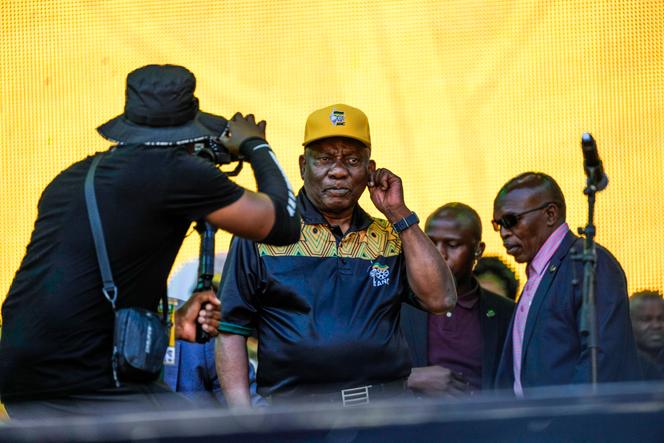
South African politics just entered a new era. The results of the May 29 general elections, officially announced on Sunday, confirm the end of the African National Congress’ (ANC) dominance. For the first time since the end of apartheid, South Africa’s liberation party will have to form a coalition in the National Assembly to retain power. An unprecedented exercise that puts South African democracy on a tightrope at a time when populism is on the rise in the country.
Between now and the election of the National Assembly’s president in 14 days, the ANC will need to lick its wounds quickly. While its decline in the polls was expected, few had anticipated such a drastic tumble. Weighed down by massive unemployment, high crime rates and decaying infrastructure characterized by the power cuts that have plagued the country for the past two years, the ANC barely garnered 40.2% of the vote, 17 points less than in 2019, when it won the election with 57.5% of the vote.
The group remains the country’s leading party, far ahead of its main rival, the Democratic Alliance (DA), which garnered 21.7% of the vote. But rarely has there been a more sombre-looking winner. While all the party leaders made an appearance at the national results center in Johannesburg, President Cyril Ramaphosa was still nowhere to be seen on Sunday afternoon. As early as Thursday, however, Gwede Mantashe, the party’s number two, appeared stunned.
‘A sensational result’ for Jacob Zuma’s party
Indeed, it soon became clear that this election would reveal an unexpected surge by former president Jacob Zuma’s party, uMkhonto we Sizwe (MK, “spear of the nation”). Accused of corruption and forced to resign in 2018 as head of state by his ANC comrades in the wake of a series of scandals, 82-year-old Zuma entered the electoral race in a surprise move in December 2023, vowing to take his revenge on “Ramaphosa’s ANC,” his successor at the head of the party toward whom he harbors a deep-seated hatred.
Mission accomplished. While the former leader was barred from standing as an MP candidate after being sentenced for contempt of court, his party became the country’s third political force with 14.5% of the vote. In its stronghold, the key province of Kwazulu-Natal, MK even took first place with 45% of the vote, relegating the ANC to third place. A result that would have seemed unthinkable just a few months ago.
“The MK party achieved a sensational result,” noted the political scientist Mike Law, a researcher with the consulting firm Paternoster. “Its base is consolidated around an ethnic group [the Zulus, the community to which Zuma belongs], which is the country’s largest. This highlights the rise of identity politics,” he added.
You have 60.45% of this article left to read. The rest is for subscribers only.